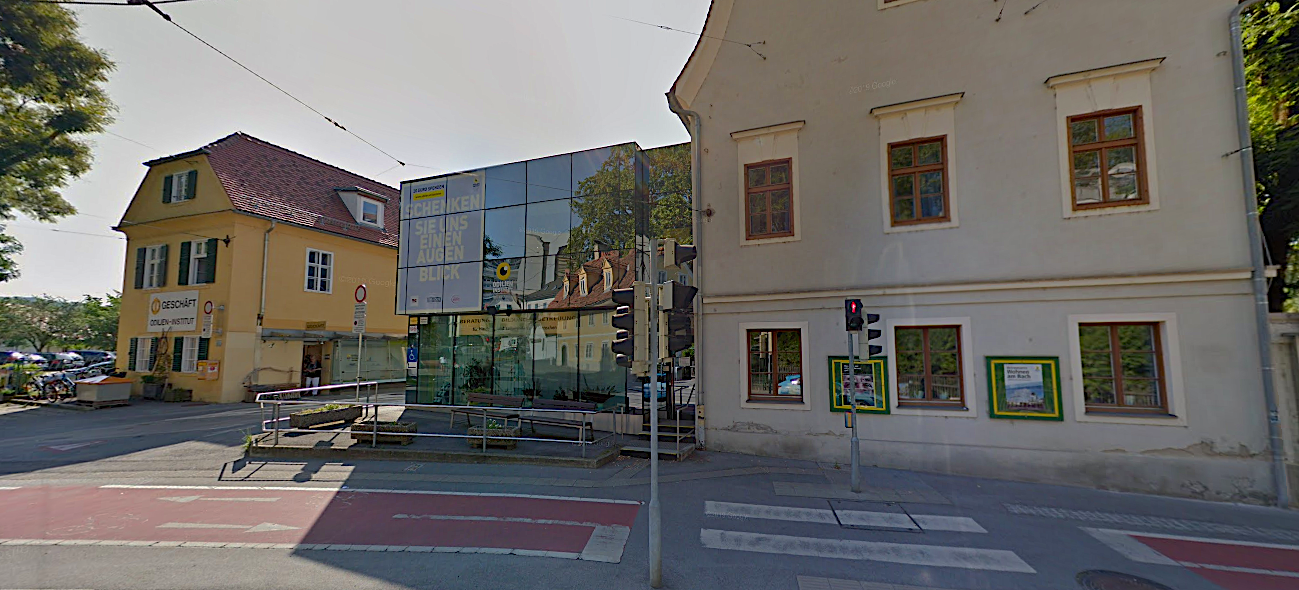Sensory history
Performing the monument: kneeling down at Irene Ransburg’s Stolperstein
Saturday 20 June 2020
While teaching an MA course at the University of Graz (Austria) in June 2018, my friend Florian Grond and I once again experimented with binaural sound recordings. During one of these experiments, we recorded my visit to and reading of a particular Stolperstein in front of the Odilien Institute for the Blind in Graz.
Irene Ranburg’s Stolperstein
To commemorate the victims of the Nazi terror, the ‘Stolpersteine’ [literally: ‘stumbling stones’] are laid at the place of a person’s last residency. In this case, the Stolperstein is dedicated to the Jewish deaf-blind poet Irene Ransburg (1898-1944), who spent an important part of her life at the Odilien Institute. Denounced by another resident of the Institute, Irene was arrested by the gestapo on 21 September 1944. She was then deported to Theresienstadt, and later on to Auschwitz-Birkenau, where she was killed on 23 October 1944.
Florian and I turned our video and sound footage of this visit into a performance. First and foremost, ‘Performing the Monument’ aims to honor Irene Ransburg’s memory and recall her tragic fate in the hands of an atrocious regime. But, from a disability perspective, ‘Performing the Monument’ also raises questions about the legibility, accessibility and context of places of commemoration. For example, to what extent do such places presuppose an able-bodied audience? Or, which media do we need to make acts of commemoration more inclusive?
Hello World Project
We launch the video today as a part of the Hello World Project, initiated by Transcultural Exchange. As the organizers describe it:
‘Hello World is an international project, where artists throughout the world have submitted art works to share with all of us. We hope you enjoy this gesture of goodwill and solidarity from our colleagues around the globe.’
Please go to Vimeo to watch and listen to the performance (make sure to use headphones for the binaural effect).

